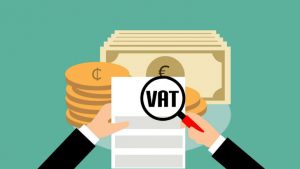
The paper details looks at the changing landscape of VAT and e-invoicing. It highlights that:
- Italy already requires invoices to be uploaded to a central system to clamp down on VAT evasion
- In 2020 Greece will introduce electronic book-keeping requirements for sales, purchase and summary tax reporting.
- From January 2023 all business invoices in France will need to be electronic.
- Elsewhere in the EU, Hungary, Poland, Portugal and Spain are looking to digitize some of all local tax processes
- In the UK, post Brexit, VAT laws will need redrafting as it is currently beholden to EU VAT directives.
Research backed insights
VATGlobal surveyed businesses across the UK, Germany and Sweden. The research was carried out by INNOFACT AG in November 2019. The whitepaper did not contain the sample size. The research looked at four key themes:
- How relevant different VAT issues are to their business?
- What are the challenges of VAT?
- How businesses are approaching VAT?
- Are businesses looking to invest in VAT technology or services?
The research asked respondent to rank 7 VAT issues:
- Imports / exports
- Invoicing / e-invoicing
- Intra-EU activities
- Non-residents’ vs residents’ registrations
- Reverse charge / domestic reverse charge
- VAT compliance and reporting
- VAT rates
Of these Invoicing and e-invoicing were rated the most relevant across all three countries. In the UK and Sweden, VAT compliance was the second most relevant. In Germany business placed VAT rates higher.
46% of respondents felt the issue of e-invoicing was due to a lack of experts. However, 51.3% expect no investment in internal VAT functions in 2020. The 45.5% did not currently have a VAT expert. One of the most significant findings was that 58% find ‘a lack of comprehensive understanding of VAT rules of different countries’ one of the three most difficult aspects of tax management.
How to solve the VAT challenge?
To counter this 56% are looking to invest in training, a far higher number that that turning to technology. In the UK only 29% are planning to use technology to help solve the issue.

Gareth Kobrin, CEO at VATGlobal commented: “The ongoing introduction of new tax regulations across Europe is leaving organisations scratching their heads around VAT. In the UK, initiatives such as Making Tax Digital (MTD) are adding complexity when it was intended to streamline, and companies don’t yet have the right measures in place to comply.
“It’s an even trickier situation for exporters to nations with more specific rulings around document formats, such as Italy and Spain. Furthermore, many firms are making life more difficult by seemingly not making the most effective use of the limited resources they have made available to the function.”
According to VATGlobal there is another way. Most companies, (86%) do not use an online tax knowledge portal despite 43% viewing it as the easiest source of information. This is good news for VATGlobal and it clearly hopes to tap into that 86%. The question is whether companies will look to solve the issue through a simple Google search or use a more professional and up to date service.
Kobrin added:“Those responsible for VAT efforts are crying out for more resources but there’s an apparent reluctance from businesses to invest in tools; this disparity needs to be addressed. Online learning portals are considered to be the most accessible method of tax education and, crucially, they don’t require the large upfront investment of other all-encompassing solutions or expert consultations.
“Providing real-time national and international tax data, users have access to accurate and actionable information that removes the need to turn to search engines. Companies can no longer leave teams under-resourced and expect them to confidently navigate the swirling sea of VAT regulation. For organisations big and small, easily accessible tax databases will become a vital tool and there’s an opportunity for some to put themselves on the front foot by addressing the issue now.”
Enterprise Times: What does this mean
That the findings of the whitepaper point toward using a service such as that provide by VATGlobal is not surprising. There are some interesting insights and information in this whitepaper. VAT in the UK will shortly go through a major overhaul. The UK may simply keep in line with the EU.
However, the government could use the opportunity to do something different. This is where companies that have already invested in cloud-based accounting solutions should gain some surety and they will be easy to update. For others using legacy solutions any changes that impact invoicing will need careful reviewing. For those businesses operating in Europe the rise of e-invoicing is also a potential issue as different countries are enacting different legislation. There appear to be three valid approaches, technology, training or outsourcing. Burying ones head in the sand is probably not going to go down well with HMRC.

























